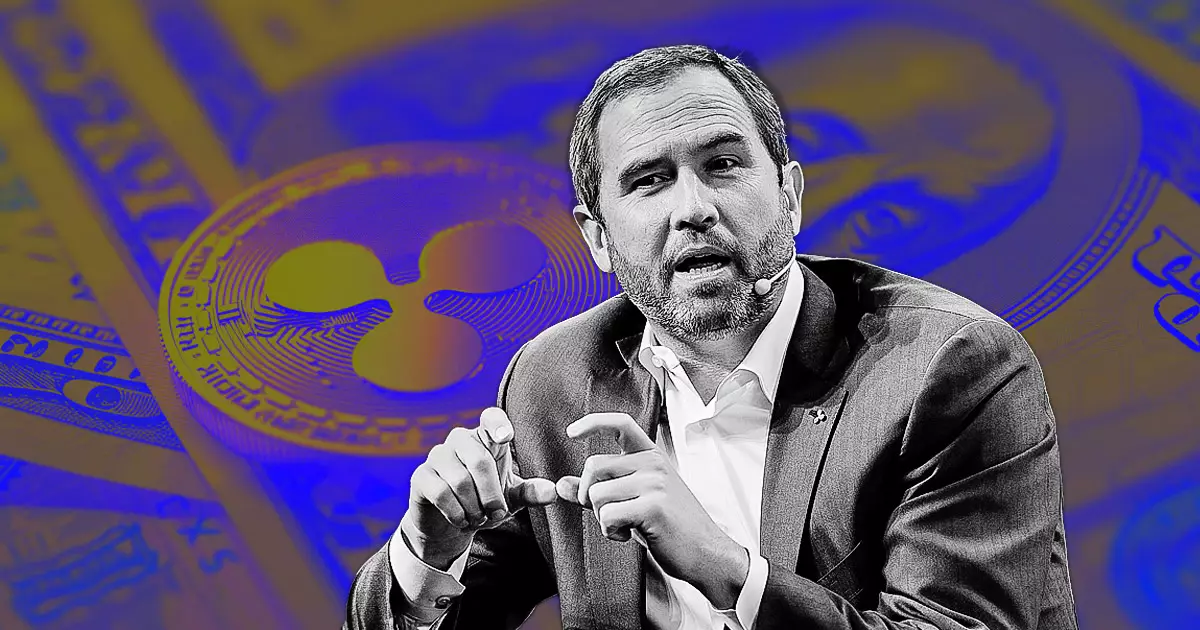The legal tussle between the Securities and Exchange Commission (SEC) and Ripple Labs continues to capture headlines, particularly after the SEC announced its intent to appeal a pivotal ruling in their ongoing dispute. This situation not only has far-reaching implications for Ripple and its digital currency, XRP, but it also highlights broader issues surrounding regulatory practices within the cryptocurrency space.
A Mixed Ruling and Its Implications
In early August, a federal court delivered a nuanced verdict in what has been a highly publicized case. The ruling found that Ripple’s programmatic sales of XRP to individual investors via cryptocurrency exchanges did not violate existing securities laws, which was a significant relief for the company and, according to many industry experts, a step forward for the cryptocurrency sector. However, the court also determined that Ripple’s direct sales of XRP to institutional investors, amounting to $728 million, were indeed classified as unregistered securities offerings. This judgment led to a $125 million penalty against Ripple—much less than the SEC’s initial demand of $2 billion.
For Ripple, the partial victories were worth celebrating, especially as they signaled some level of judicial acknowledgment of the complexities surrounding digital assets and their classification. However, the SEC’s recent decision to appeal this ruling casts a shadow over these early accomplishments, thrusting Ripple back into a turbulent legal spotlight.
The SEC has maintained that its pursuit of Ripple is justified, arguing that the district court’s ruling contradicts established Supreme Court precedent regarding the definition and treatment of securities. Ripple’s CEO, Brad Garlinghouse, and Chief Legal Officer, Stuart Alderoty, have both expressed their disappointment with the SEC’s appeal. Garlinghouse described the ongoing legal battle as a misuse of taxpayer resources, arguing that the key issues have already been settled in favor of Ripple.
The SEC’s relentless pursuit of the case raises valid questions about regulatory overreach in the cryptocurrency space. Garlinghouse’s assertions that the SEC has “lost on everything that matters” reveal not only his frustration but also a broader sentiment among industry stakeholders who feel mired in a complex regulatory environment that is not entirely clear or consistent. The SEC’s actions suggest a persistent inclination to control how digital assets are classified, despite judicial outcomes that hint the agency is overstepping its boundaries.
The SEC’s announcement has caused immediate repercussions in the marketplace, with XRP experiencing a severe drop in value—approximately 9%—following the news. By October 3, 2024, XRP’s price had settled just above $0.54, reflecting the anxiety of investors who often react sharply to legal uncertainty. The volatility around XRP emphasizes the delicate balance that exists between the evolving regulatory landscape and investor confidence.
Moreover, the case against Ripple coincides with a larger crypto market that is valued at around $2.12 trillion, with Bitcoin dominance remaining significant at 56.74%. This context delineates the importance of Ripple and XRP not only as individual entities but also as contributors to the broader ecosystem.
As both Ripple and the SEC prepare for what could be a protracted legal standoff, the industry watches closely. Discussions among Ripple’s legal team about potential cross-appeals indicate they do not plan on backing down easily. Ripple’s position—as a representative of the increasingly influential cryptocurrency industry—places them at the forefront of the debate on how digital assets should be regulated.
The ongoing legal battle underscores the need for a clear regulatory framework that accommodates innovative technologies without stifling their growth. Both Ripple and the broader cryptocurrency community advocate for a regulatory approach that balances oversight with flexibility—an essential transition to encourage development and investor protection.
The SEC’s appeal is more than just a battle between a regulatory body and a tech company; it is emblematic of the struggles faced within an industry that is still defining its legal, financial, and ethical boundaries. Whether Ripple will ultimately prevail in stabilizing its standing in the cryptocurrency market—or offset the appeal’s adverse effects—remains to be seen, but one thing is clear: the stakes could not be higher for all involved.


Leave a Reply